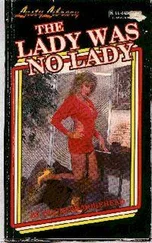Raba'i al-Madhoun
The Lady from Tel Aviv
This novel is dedicated to my wife Sana. And to its characters, Walid Dahman and his mother Amina, Adel El-Bashity and Nasreddine, who lived with us for a full three years.
Tomorrow morning Walid Dahman arrives in Gaza. His mother cannot believe the news. She thinks it is just a rumour or legend. Or a fable, like the story of Palestinians returning to their homeland one day.
Each morning she asks herself, ‘Will my son come back home before I die? Will I have the chance to tell him all those things I was keeping from him? What will he tell me?’
She has asked herself those questions over and over for thirty-eight years. She listens as the wind whispers the words back to her. She murmurs her disappointments to herself while folding them in the wrinkles and creases of her bedclothes. These are the misgivings she goes to sleep with in the evening. These are the questions she wakes to in the morning. When Walid called from London, she could barely hear him say, ‘Mama, I’m coming to Khan Yunis. I’m coming home.’ She could not believe it. She did not believe it. Her words ramble on feverishly, and then suddenly, trembling, she blurts out, ‘Son — what in heaven’s name could be bringing you back here after all these years?’
Walid gets in about 9 am. His visit is no longer just an idea or possibility. No — he bought his ticket to Tel Aviv. He even chose a flight with an arrival time that would get him there in time to eat breakfast with his mother. For thirty-eight years she has been making breakfast and setting it out for me every morning. And now the time has finally come to eat it with her.
He lugs a large suitcase in his right hand, a bag hangs from his left shoulder. He puts his British passport in the shirt pocket right over his heart. He closes the door behind him and begins his journey.
Walid is meeting his mother in an apartment he has never set foot in before. They call it ‘the last bachelor pad’. It is a two-bedroom place on the fourth floor. They have made up the room on the street-side for his stay. They put a wooden bed and a wide couch in his room, along with a simple desk where Walid will sit for hours. In the morning, he will surf news sites, skim his email and reply to some of the messages in his inbox. He will also resume work on Homeland of Shadows . So many of the details of the book — his fourth novel — hang on how this trip goes.
Something that Walid does not know: in the morning he will rise to the light of a hand-me-down sun that has passed through the Jewish settlement of Nisanit. Gradually he will come to understand this strange phenomenon for what it is, and will do what everyone else does with it. In his dreams, he will wash out the sun. He will do his best to wash away all the shadows of possibility so that the sun stays clean all day long. Yes, as the sun begins to venture off once more into the night, the settlers from Dugit will steal it again. They will grab the sun just before it melts, out there, into the folds of the horizon. When that happens, Walid, like everyone else, will feel the light as it breaks out there, beyond the distant line of barbed wire, outposts and observation towers. When the sun returns again the next morning, it will be wearing clothes cast off by others.
Among the other things that Walid does not know: the last bachelor pad on the fourth floor of the apartment building sits just below the roof, which houses a small poultry farm. His maternal cousin, Nasreddine Dahman, constructed the apartment building during the economic boom of the seventies. In those days, Israel purchased Gazan lives by the year and in bulk. It bought bronzed Gazan forearms licked by the noonday sun and stroked by the salty Mediterranean breeze. In this way, a river of pure Gazan sweat flowed into Israel, irrigating the agricultural sector, mixing into the cement of settlements, and washing the dirty streets clean. That river of sweat was even blended into exquisite cocktails and, some said, used to distil drinking water.
In his day Nasreddine was a hulk of a man. He was tall, with broad shoulders and arms that could lift anything. His hands were so rough he could rub the face off a coin with his bare fingers. When he smashed almond shells against the wall, the explosion could be heard by all eighty thousand inhabitants of the Beit Lahia and Jabalia camps.
Nasreddine used to carry his grandfather’s goat on his shoulders. Abbas, his grandfather, had bought the animal so he could rent him out during the mating season. Tan, with honey-brown eyes, that goat had a silky red beard very much like the old man’s. Across Nasreddine’s massive shoulders, it looked like a kitten.
Nasreddine had a handsome face and the kind of dark skin that women go crazy for. Not that Nasreddine appreciated what he had, or even realized its significance. He hated the colour of his skin and said that it was the dull hue of aubergines. Because of this, he could not stand dishes that contained that swarthy vegetable. And he despised pop songs about tawny beauties — in his mind, they were appalling jingles that only drew more attention to the bad luck of men and women born with brown skin. For roughly the same reason, he loathed Gregor Mendel. Every now and then he would rail at the geneticist, calling him an imbecile who lied and fabricated his evidence. One morning, back in high school, Nasreddine had told his biology teacher that if Mendel’s genetic theories were correct, he would have inherited his complexion from his mother and father in equal parts. If the famous Austrian’s theories were at all correct, he would have had at least something from his father — like eyes so blue the sea would envy him, or hair fairer than sandy beaches, or the coppery skin of a pomegranate. Nasreddine’s teacher laughed and his dark-skinned classmates applauded him.
Nasreddine found employment in many trades. When the walls of apartment buildings began to go up in the Jewish settlements, it was on his back and shoulders. When Sderot and Rehoboth and Ramat Gan and Ashkelon — not to mention many other Israeli settlements, towns and cities — threw out their rubbish, Nasreddine devoted himself to hauling the stuff away. His hands planted their apple orchards and vineyards, his back heaved crates of export citrus.
Nasreddine would disappear into Israel for a day or more — sometimes for an entire week — selling his day to Israeli taskmasters. When night descended, he would spread out his exhaustion like a mattress and pull the sheets of darkness over him as covers. Over ten years of work, he had managed to save up a few thousand dollars and this enabled him to build a single-storey house for his parents. Over the years, the sweat of his oldest sons raised that house even higher, floor by floor, to the sky. Like him, they had not been able to sell their labour on the local market, and so went elsewhere. In time, the house became a four-storey edifice that took its name from the man who had first built it. Eventually, the Nasrite Building became the envy of many others still standing and others that died, nameless, under the blades of occupation bulldozers.
Walid knows that Nasreddine has seven children. He remembers the names of the five sons, though their identities are scattered in faces he has only ever imagined. And there are two girls who are more like constellations of letters than actual people. This hazy familiarity was a blessing — it allowed him to imagine his cousin’s children however he liked, changing their faces and personalities at will. Sometimes he imagined them dark-skinned and sometimes fair, but most often as complete amalgamations. Featureless, they drifted in and out of his imagination. When he grew tired of imagining them this way, he made them out to be perfect replicas of the young Nasreddine and assigned them names at random.
Читать дальше












